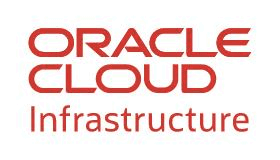Description

Bandwidth

Oracle Cloud Infrastructure
Comprehensive Overview: Bandwidth vs Oracle Cloud Infrastructure
Oracle Cloud Infrastructure (OCI) and Bandwidth:
Oracle Cloud Infrastructure and Bandwidth serve different purposes within the tech industry, targeting distinct market segments and use cases.
a) Primary Functions and Target Markets
Oracle Cloud Infrastructure (OCI):
-
Primary Functions:
- Oracle Cloud Infrastructure offers a suite of cloud services aimed at enterprises. It provides Infrastructure as a Service (IaaS), Platform as a Service (PaaS), Software as a Service (SaaS), and Data as a Service (DaaS).
- OCI includes computing, storage, networking, database, and application development services. It also provides tools for artificial intelligence, machine learning, and analytics.
- OCI features robust security, high availability, and scalable solutions to support critical enterprise workloads.
-
Target Markets:
- Traditional enterprises, particularly those in finance, telecommunications, healthcare, and retail sectors.
- Organizations looking to migrate legacy IT infrastructure to the cloud.
- Companies requiring strong database capabilities, especially those already using Oracle Database products.
Bandwidth:
-
Primary Functions:
- Bandwidth is a cloud-based communications platform specializing in Voice over IP (VoIP), messaging services, and 911 access.
- The company provides APIs that enable voice calling, text messaging, and embedded communication features for applications.
- Key services include phone numbers, routing, verification, and telecom compliance management.
-
Target Markets:
- Technology companies developing communication applications.
- Enterprises needing integrated voice, messaging, and 911 services.
- Businesses operating in the telecommunications sector, particularly those needing seamless API integration.
b) Market Share and User Base
-
Oracle Cloud Infrastructure:
- OCI is part of a highly competitive cloud services market dominated by major players like Amazon Web Services (AWS), Microsoft Azure, and Google Cloud Platform (GCP).
- While Oracle's market share is smaller compared to these giants, OCI has been growing by attracting companies that benefit from Oracle's existing enterprise relationships, proprietary database technology, and competitive pricing strategies.
-
Bandwidth:
- In the Communications Platform as a Service (CPaaS) segment, Bandwidth competes with companies like Twilio, Nexmo (Vonage), and Plivo.
- Bandwidth holds a significant position within this niche, leveraging its own nationwide IP voice network for cost efficiency and flexibility.
- The company's market share is smaller relative to Twilio, but Bandwidth distinguishes itself through its infrastructure ownership and ability to offer customizable communication solutions.
c) Key Differentiating Factors
-
Oracle Cloud Infrastructure:
- Deep integration with Oracle's enterprise database solutions and applications, offering potential cost advantages and efficiencies for enterprises already using Oracle software.
- Hybrid and multi-cloud capabilities, facilitating seamless integration with on-premises and other cloud environments.
- Competitive pricing models and billing methodologies for enterprises handling large and complex workloads.
-
Bandwidth:
- Ownership of a national IP voice network, providing greater control over quality, reliability, and cost compared to peers who lease telecom infrastructure.
- Extensive API offerings that allow businesses to customize and embed communication features into their applications seamlessly.
- Strong 911 solutions and emergency services catered to North American businesses, emphasizing compliance and security.
In summary, Oracle Cloud Infrastructure is geared towards comprehensive cloud services for enterprises, particularly those using Oracle systems, while Bandwidth is a dedicated CPaaS provider enabling communication capabilities within applications. Their distinctions lie in their targeted markets, core offerings, and strategic advantages in their respective fields.
Contact Info

Year founded :
2021
Not Available
Not Available
United Arab Emirates
Not Available

Year founded :
Not Available
Not Available
Not Available
Not Available
Not Available
Feature Similarity Breakdown: Bandwidth, Oracle Cloud Infrastructure
When comparing Bandwidth and Oracle Cloud Infrastructure (OCI), it's important to note that they serve somewhat different primary functions. Bandwidth is mainly known for its communication APIs, particularly in voice and messaging, catering to businesses looking to incorporate communication capabilities into their applications. Oracle Cloud Infrastructure, on the other hand, is a comprehensive suite of cloud services that covers everything from computing and storage to networking, analytics, and more. Despite their differences, there can be some overlaps or areas of comparability, especially if viewed in a broader cloud services and communications context.
a) Core Features in Common
While Bandwidth and Oracle Cloud Infrastructure focus on different primary service areas, they share some broad cloud-related features:
-
Scalability: Both platforms offer scalability to accommodate the increasing demands of businesses, whether for communication services or broader cloud computing needs.
-
Security: They provide robust security measures to protect data and user interactions. This includes encryption, compliance with industry standards, and secure access controls.
-
APIs: Both services offer APIs, though Bandwidth focuses on communication APIs, while OCI provides a range of APIs for managing cloud resources.
-
Global Reach: Both platforms have infrastructure that supports global operations, offering services that can be leveraged across multiple geographical regions.
b) User Interface Comparison
-
Bandwidth: The user interface for Bandwidth’s offerings tends to be more specialized towards developers and businesses integrating communications. The focus is often on providing an easy-to-use, intuitive developer portal for managing API keys, viewing usage data, and accessing documentation. The simplicity of UI/UX aligns with the needs of developers who require straightforward access to communication functionalities.
-
Oracle Cloud Infrastructure: OCI features a more comprehensive and complex console due to its broader range of services. Its UI is designed to manage a wide array of cloud services, from computing power and storage to data management and networking. As a result, its interface is more complex and requires a steeper learning curve to master fully. However, Oracle provides extensive documentation and tutorials to aid users in navigating their platform.
c) Unique Features
-
Bandwidth:
- Communication Focus: Bandwidth excels in data-driven communication services, providing voice, messaging, and emergency services. Such specialized APIs allow companies to embed telephony functionalities directly into their applications.
- Phone Number Management: Bandwidth provides extensive features for acquiring, managing, and porting phone numbers, which is particularly useful for businesses operating at scale.
- Carrier Network: Being a licensed telecommunications carrier, Bandwidth has direct control over its network infrastructure, which can ensure high reliability and performance for communication services.
-
Oracle Cloud Infrastructure:
- Comprehensive Cloud Services: OCI offers a full range of cloud infrastructure services, from compute and storage to networking and edge services, making it a complete ecosystem for enterprise cloud computing needs.
- Autonomous Services: OCI provides unique services like Autonomous Database, which uses AI and machine learning to automate database management, offering advanced capabilities in performance tuning and security.
- Integrated Applications: OCI is tightly integrated with Oracle's suite of business applications, making it a preferred choice for enterprises already using Oracle services for operational systems.
- Flexible Compute Options: OCI provides a variety of compute instances catering to different workloads, including high-performance computing, GPU processing, and more.
In conclusion, while there are core cloud computing and infrastructure features that Bandwidth and OCI share, their primary differentiations are driven by Bandwidth's specialization in communication services and OCI's broad-based cloud service offerings. Each brings unique strengths to their respective domains.
Features

Not Available

Not Available
Best Fit Use Cases: Bandwidth, Oracle Cloud Infrastructure
To effectively evaluate the ideal use cases for Bandwidth and Oracle Cloud Infrastructure (OCI), it's important to understand what these platforms offer and how they cater to different business needs, industry verticals, and company sizes.
Bandwidth
Bandwidth is primarily known for its communication APIs, which empower businesses to integrate voice and messaging capabilities into their applications. Here’s a breakdown of its best fit use cases:
a) Businesses or Projects Suited for Bandwidth
-
Communication-Centric Businesses: Companies that offer communication services, such as telehealth platforms, customer support centers, and conferencing services, can benefit from Bandwidth’s APIs for voice, messaging, and 911 access.
-
Software Applications with Communication Features: SaaS companies that need to incorporate telephony or messaging features directly into their applications without managing telecom infrastructure.
-
CPaaS (Communications Platform as a Service) Usage: Enterprises looking to enhance existing applications with real-time communication capabilities can leverage Bandwidth's CPaaS offerings.
-
Innovative Startups: Startups focused on developing new communication-focused technologies can use Bandwidth to rapidly prototype and validate their solutions.
Oracle Cloud Infrastructure (OCI)
OCI provides a robust suite of cloud services that can support a wide range of computing tasks, from data storage to complex applications. Here’s why and when OCI might be the preferred option:
b) Scenarios for OCI Use
-
Large Enterprises with Complex IT Needs: Businesses requiring scalable compute resources, advanced data management, and enterprise-grade security often choose OCI to support diverse workloads.
-
ERP and Business Applications: Organizations using Oracle's enterprise applications, like ERP or supply chain software, can benefit from the enhanced performance and integration offered by OCI.
-
Data-Intensive Applications: Companies in need of powerful data processing and analytics services, such as big data analytics or machine learning workloads, find OCI’s infrastructure very compatible.
-
Organizations with Regulatory Requirements: Industries with strict compliance needs, such as finance or healthcare, leverage OCI for its security features and compliance certification.
-
Hybrid Cloud Models: Businesses looking to design hybrid cloud models that seamlessly connect on-premises applications with cloud deployments can find OCI’s offerings advantageous.
Catering to Industry Verticals and Company Sizes
-
Bandwidth mostly appeals to companies across various industries that prioritize communication, such as healthcare (telehealth), customer service, and fintech (for transactional notifications). It scales well for small to medium enterprises seeking to introduce agile communication features within existing systems.
-
OCI accommodates a broader range of industry verticals, with a particular advantage for industries relying on heavy processing and secure data management. It serves large enterprises seeking an end-to-end cloud service, while its flexible, scalable solutions also cater to mid-sized businesses aiming for growth and digital transformation.
Overall, selecting between Bandwidth and OCI largely depends on specific business needs, ranging from communication integration to comprehensive IT infrastructure solutions. Each platform offers unique strengths that align with different project requirements and industry challenges.
Pricing

Pricing Not Available

Pricing Not Available
Metrics History
Metrics History
Comparing undefined across companies
Conclusion & Final Verdict: Bandwidth vs Oracle Cloud Infrastructure
To provide a well-rounded conclusion and final verdict regarding the comparison between Bandwidth and Oracle Cloud Infrastructure, let's break down the components you are interested in:
Overall Value Assessment:
a) Considering all factors, which product offers the best overall value?
When evaluating Bandwidth and Oracle Cloud Infrastructure, the best overall value depends largely on the specific needs and objectives of the user:
-
Bandwidth offers significant value for businesses requiring robust telecommunication APIs, voice solutions, and messaging capabilities. It is particularly beneficial for companies operating in industries such as healthcare, telecommunications, and any business model heavily reliant on real-time communication features.
-
Oracle Cloud Infrastructure (OCI), on the other hand, provides comprehensive cloud services that cater to a wide array of enterprise IT needs including compute, storage, networking, database, and analytics. Its value is best realized by organizations seeking full-fledged cloud computing solutions with strong performance and security features.
Verdict: For a business focused on communication solutions, Bandwidth might offer the best value. Conversely, for enterprises requiring a broad suite of cloud services, Oracle Cloud Infrastructure presents superior value.
Pros and Cons:
b) What are the pros and cons of choosing each of these products?
Bandwidth Pros:
- Specializes in communication services with reliable APIs.
- Offers flexibility in voice and messaging solutions.
- Strong support for integrations with existing communication platforms.
Bandwidth Cons:
- Limited focus compared to comprehensive cloud service providers.
- May not be suitable for businesses needing diverse IT solutions beyond communication.
Oracle Cloud Infrastructure Pros:
- Offers a broad suite of services, covering nearly all aspects of cloud computing.
- Competitive pricing, especially for enterprises needing no-frills storage and computing power.
- Strong enterprise-grade security and compliance features.
Oracle Cloud Infrastructure Cons:
- Complexity can be a barrier for smaller organizations or those without specialized IT staff.
- May have not as mature a developer ecosystem specifically for communication services as Bandwidth.
Recommendations:
c) Are there any specific recommendations for users trying to decide between Bandwidth vs Oracle Cloud Infrastructure?
-
Assess Organizational Needs: Users should thoroughly evaluate their organizational needs. If communication and messaging are critical to their operation, Bandwidth's focused services will be valuable. Conversely, if they require a holistic cloud solution encompassing a wide range of IT needs, OCI is strategic.
-
Consider Technical Expertise: For companies with robust IT teams, OCI’s complexity can be a powerful asset. However, if the focus is narrowed down to seamless communication APIs without extensive in-house IT resources, Bandwidth would be more manageable and efficient.
-
Future Growth: Consider long-term scalability and the potential need to integrate broader IT solutions in the future. If there's a foreseeable expansion into comprehensive cloud services, starting with OCI might prove advantageous.
Conclusion:
The "better" product in this scenario is contingent upon the user’s specific requirements. Bandwidth excels in specialized communication services, making it the best choice for companies primarily focused on enhancing voice and messaging capabilities. Alternatively, Oracle Cloud Infrastructure offers expansive cloud services and might offer the best overall value for organizations pursuing extensive, enterprise-grade cloud solutions across multiple domains. Users are encouraged to align their choice with organizational goals, technical capabilities, and long-term infrastructure plans.
Add to compare
Add similar companies




